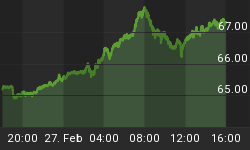
The purpose of keeping accurate accounts is to quantify net worth at any given point in time - as well as the change from a prior date. It goes without saying that the measure used, money, should be constant if comparisons over time are to mean anything. Only then do prices of capital goods, consumer goods and services truly reflect their changing values, giving important signals to businessmen. With unstable fiat money market signals lose much of their meaning.
It is not normal for businessmen to fret over this. They tend to work from management accounts which are usually prepared monthly, and over that time-scale a depreciating currency is unnoticed - except in the case of monetary extremes. However, businessmen should pay attention to the problem, because the accumulation of entrepreneurial wealth is achieved over many years; its productive value can be significantly altered by fluctuations in the purchasing power of unstable money.
Governments in countries like the United Kingdom have destroyed much of their manufacturing industry through currency depreciation, while Germany contrasts with a history of engineering excellence and a firm currency. The German business owner in the post-war years had relative certainty of economic calculation, allowing him to build up his productive wealth; while the British business lobby resorted to encouraging successive governments to keep costs down by devaluing the pound, rather than investing their own resources in more efficient production.
Reducing costs by managing the currency is, to put it less politely, all about robbing the workforce of the purchasing power of its wages. But the workforce is, in economic terms, made up of individual entrepreneurs selling their skills and labour to employers. They are the unconscious victims of devaluation as indeed are small businesses, but at least in the short-term the central planners manipulating fiat money congratulate themselves that jobs have been saved.
The cost comes later, as consumers - who in turn are also entrepreneurs and savers - pay the bill through higher prices and lose on their savings through lower interest rates and monetary value. So where's the benefit?
None. The history of nations whose governments respect sound money, such as Germany and Japan in the post-war years, has been one of persistent economic progress, despite otherwise economically incompetent governments. This is in contrast with the UK and some European countries, whose continual devaluations were always accompanied by economic underperformance. Since then all governments have increased their currency debasement efforts. Nevertheless, it is striking that businesses do better with a stable currency in the long run than with the supposed benefits of these continual devaluations.
This lesson is not so clear to today's economists, because Japan blew up over 20 years ago, Germany ditched her currency for the euro, and now we have a worse set of problems. But those of us who understand that currency devaluation only serves to defraud the majority of society must be alarmed that the governments of nearly all the advanced economies are racing each other to rob their citizens in this way.
Instead of bringing about a Lazarene recovery in the economy, this approach is already failing, because the very basis of economic calculation is being destroyed. Who knows the value of anything anymore? We do however know the inevitable outcome of this lunacy, and it is not good.















